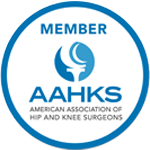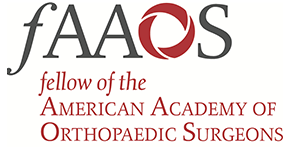Arthritis/Pain

Arthritis refers to inflammation, pain, swelling, or stiffness in a joint. Most frequently caused by wear and tear of the cartilage surfaces of the bones, shoulder arthritis tends to progress. When coupled with rotator cuff tears or insufficiency this can further accelerate this cartilage breakdown. Commonly, shoulder arthritis can lead to significant stiffness, weakness, and pain that limits your activities.
Bones
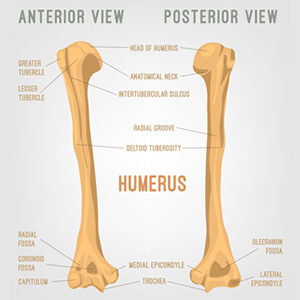
Humerus (Arm bone, head=ball)
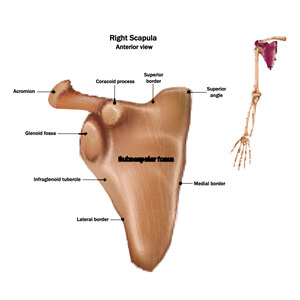
Glenoid (Socket)
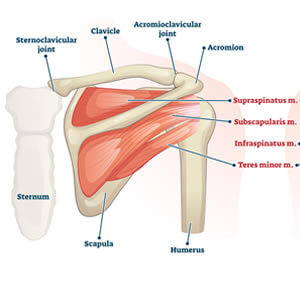
Clavicle (Collarbone)
Cartilage
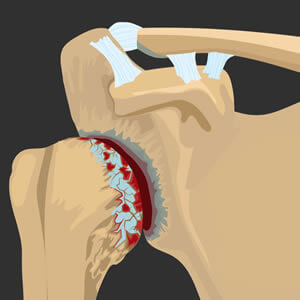
Four muscles that facilitate movement of the shoulder
Rotator Cuff
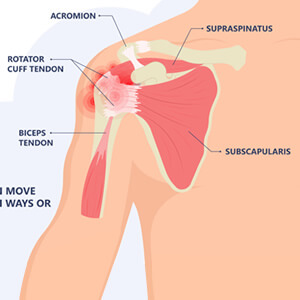
Covering on articulating surfaces of the bones
Causes of Shoulder Pain
Acute shoulder pain begins after an identifiable cause or is of recent onset. The most common acute shoulder injury types are:
- Fracture (bones)
- Musculotendinous strains (muscles/tendons)
- Sprains/dislocations (ligaments)
- Labrum or osteochondral injuries (cartilage)
- Contusions (soft tissue or bone)
Acute shoulder pain is most commonly treated nonoperatively with rest, ice, elevation, physical therapy and anti-inflammatory medications.
Pain which does not resolve is considered chronic pain. While there are multiple possible causes of chronic pain, osteoarthritis, or the wear and tear of cartilage, is the most common cause. Evaluation by a physician with radiographic studies is the most reliable method of diagnosing arthritis.
As the cartilage is lost at the ends of the bones, the underlying bone is exposed. Motion in the joint now causes pain, swelling, stiffness, and sometimes catching or locking. Prior trauma, chronic rotator cuff injury/rupture, or inflammatory arthropathies can also damage cartilage, and the end result is similar. As the condition progresses, daily activities become more difficult to complete and lifestyles are limited.
Because the arthritic process cannot be reversed, eventually shoulder joint replacement options may be necessary



